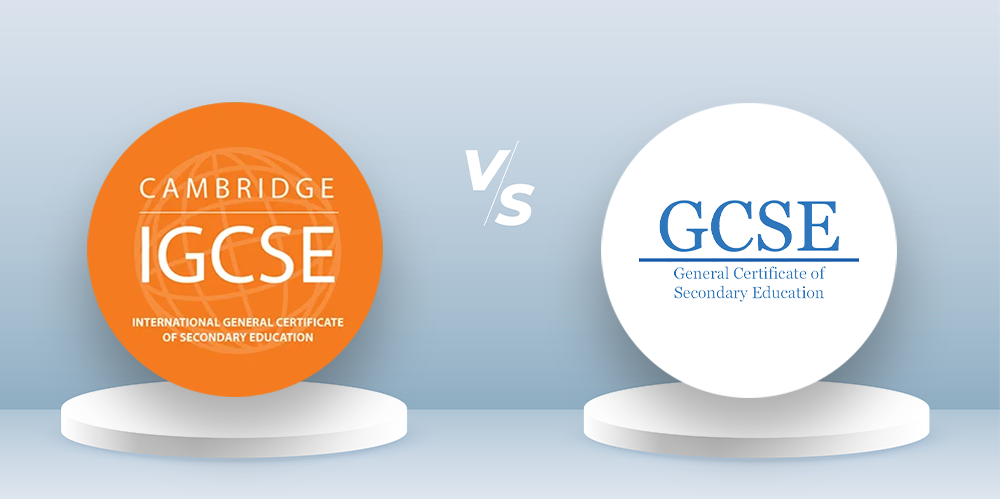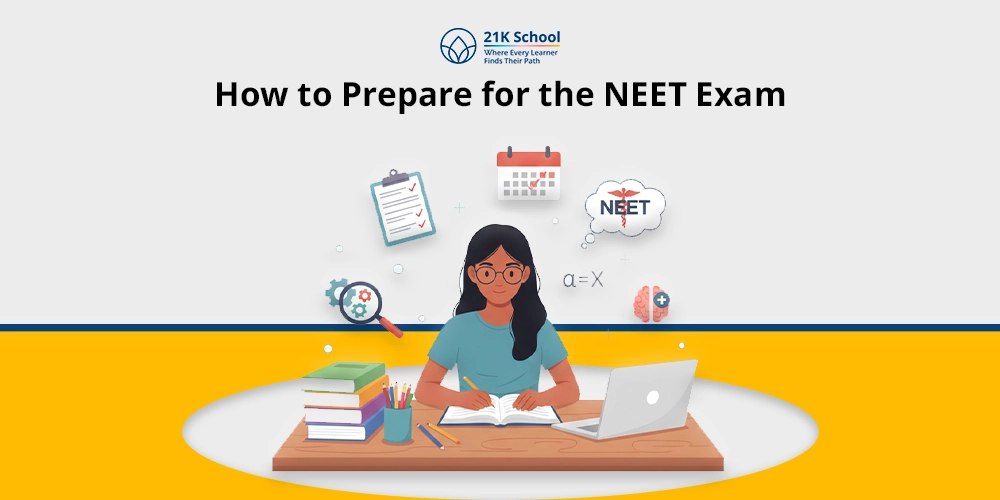
Decision making is difficult ?
Especially when it comes to education !
Selecting the right qualification at secondary school is one of the most important decisions that students and parents can make.
Two of the most recognizable choices are IGCSE (International General Certificate of Secondary Education) and GCSE (General Certificate of Secondary Education).
They result in a similar level of learning at a higher level; however, the delivery process differs in course organisation, tests, and entrance recognition worldwide.
This article deals with main aspects and characteristics of IGCSE and GCSE, so you can make the best decision to achieve your goals.
Contents
- What is an IGCSE?
- What is a GCSE?
- Difference Between IGCSE and GCSE
- Are IGCSEs and GCSEs Equivalent?
- How to Choose GCSE Subjects?
- How to Calculate IGCSE Marks
- Is IGCSE or GCSE Better for You?
- Do Universities Prefer IGCSE or GCSE?
- IGCSE: Advantages and Disadvantages
- GCSE: Advantages and Disadvantages
- Conclusion
What is an IGCSE?
commonly referred to as Cambridge IGCSE.
International General Certificate of Secondary Education popularly called IGCSE is a qualification that is taken internationally by students in the age range of 14 to 16 years.
It has its origin in the University of Cambridge and most students from different parts of the world take it, and the college has issued strict IGCSE guidelines for college to be followed for the curriculum.
The IGCSE curriculum is also more skill-based and also application based rather than, you know, encouraging the students to solve puzzles and thus gain problem solving skills.
It is a major provider of subject areas across all fields and students are free to select the subjects of their choice close to their careers.
What is a GCSE?
GCSE (General Certificate of Secondary Education), which is a qualification conferred on students in England, Wales, and Northern Ireland to mark the end of their secondary education (between the ages of 14-16).
It was implemented for viewing in the UK to replace the packages of previous forms in order to enhance the homogeneity of learning results.
The GCSE, on the one hand, correlates with a rather theoretical approach emphasising the necessities of obtaining real academic knowledge.
Most learners do sit for these examinations in core courses such as English, mathematics, and science besides subject choices of their preference.
Difference Between IGCSE and GCSE
| Comparison Parameter | IGCSE | GCSE |
| Curriculum Structure | International, more flexible syllabus | UK-focused, standardised syllabus |
| Assessment Method | Mix of exams and coursework | Primarily exam-based |
| Grading System | A*-G or 9-1 grading scale | 9-1 grading scale |
| Syllabus Content | Broad, international topics | UK-centric content |
| Difficulty Level | Considered more challenging | Standard academic rigour |
| International Recognition | Widely recognized worldwide | Recognized in the UK and globally |
| Course Flexibility | Offers greater subject flexibility | More rigid subject requirements |
| Exam Board | Cambridge, Edexcel | AQA, Edexcel, OCR |
| Student Demographic | Taken by international students | Mainly taken by UK students |
| Subject Choices | Extensive range of subjects | Core subjects with fewer electives |
| Language Options | Multiple language offerings | Limited language options |
| Teaching Approach | Focus on practical applications | Emphasis on theoretical knowledge |
| Availability in Schools | International and private schools | Public and private UK schools |
| Preparation for Further Education | Prepares for A-Level/IBDP | Prepares for A-Level |
Are IGCSEs and GCSEs Equivalent?
Yes, IGCSE and GCSE exams are deemed to be comparable. Both are consumed by learners of the same nuts and bolts, and form the basis for their further education.
However, the preference of one method over the other depends on the further activities of the student and on the educational systems of the country, in which he or she plans to continue the study.
How to Choose GCSE Subjects?
During a choice of GCSE subjects, students should rely on their preferences, study capabilities, and plans for future employment.
English, Mathematics, Science, and Humanities are compulsory subjects; however, students may select options according to their preferences of humanities, languages, and arts.
Their selection should also coincide with their future study and university needs of the students.
How to Calculate IGCSE Marks
IGCSE marks are cumulative of the course work, practical’s and terminal examinations. The grading scale common used falls between A* and G where A* means the best grade and G is the lowest.
On the new grading system, as mentioned above, marks are also given on a numerical scale ranging from 9 to 1 within the pass and fail bandwidth.
Is IGCSE or GCSE Better for You?
It is important therefore to look at the differences in choice between IGCSE and GCSE to be able to understand when and how to use each of them effectively in the classroom.
IGCSE is more favourable for students, who will further their education abroad or in a more multicultural environment, whereas GCSE may be preferred by students who are going to keep to British educational systems and educational routes.
Here’s a guide to IGCSE : That every Students & Parents needs to know
Do Universities Prefer IGCSE or GCSE?
IGCSE and GCSE are recognized as similar qualifications by universities most of the time. Both are recognized for their educational standards and accepted within the same regard as entrance credentials. Nevertheless, some universities may accept IGCSE provided the learner has been learning from an international school since it is a more inclusive syllabus.
IGCSE: Advantages and Disadvantages
Advantages:
- International recognition and world wide acceptability
- Flexible curriculum with a wide range of subjects
- Focus on holistic development with critical thinking and practical skills
Disadvantages:
- May be perceived as more challenging due to its rigorous course structure
- Limited availability in public schools
- Not economical – Can be more costly than GCSE
GCSE: Advantages and Disadvantages
Advantages:
- Standardised curriculum with consistency across the UK – may not be internationally accepted
- Strong foundation for A-Level studies – contributing to overall holistic development and personal skill development.
- Widely recognized and accepted in the UK (for higher studies and college admissions)
Although GCSE tends to be difficult in terms of subjects and because of its standardised curriculum, accessing past question papers can help in succeeding the exams.
Disadvantages:
- Limited flexibility in subject choices and skill based learnings
- Focused on theoretical knowledge rather than critical thinking and problem solving.
- May not be as internationally recognized as IGCSE as it has a standardised curriculum for the UK standard.
Conclusion
Both IGCSE and GCSE offer robust and comprehensive education to learners and help them in preparing for higher education and future careers.
The decision between the two should be made with great responsibilities and should always be based on individual student needs, learning preferences, and future educational goals.
Every learner is different and one size does not fit all.


